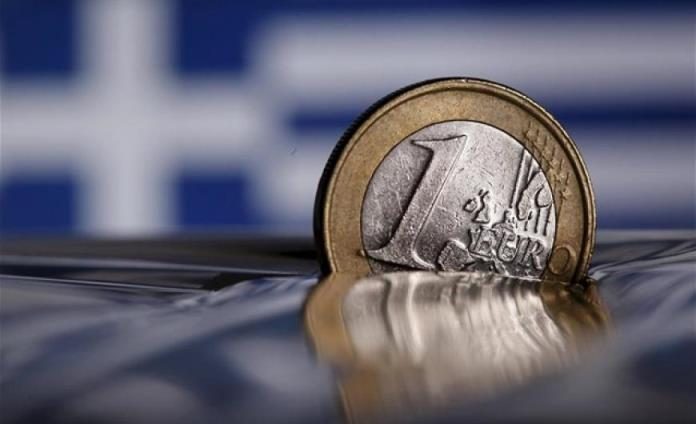Σε αναβάθμιση της πιστοληπτικής ικανότητας της Ελλάδας, προχώρησε το βράδυ της Παρασκευής ο οίκος αξιολόγησης “Scope Ratings”.
«O οίκος αξιολόγησης “ Scope Ratings” προχώρησε, σήμερα, στην αναβάθμιση της πιστοληπτικής ικανότητας της Ελλάδας σε “ ΒΒ+”, από “ ΒΒ” προηγουμένως, θέτοντας τη χώρα μας ένα “ σκαλοπάτι” μακριά από την επενδυτική βαθμίδα, δήλωσε ο υπουργός Οικονομικών Χρήστος Σταϊκούρας.
«Είναι η τρίτη φορά που διεθνής οίκος αξιολόγησης αναβαθμίζει, εν μέσω της υγειονομικής κρίσης και των συνθηκών υψηλής αβεβαιότητας που αυτή έχει προκαλέσει παγκοσμίως, το αξιόχρεο της χώρας μας, δίνοντας ακόμα μία “ ψήφο” εμπιστοσύνης στην Ελλάδα και στις προοπτικές της.
Πρόκειται, αναμφίβολα, για μια ιδιαίτερα θετική εξέλιξη, η οποία έρχεται να προστεθεί σε μια αλυσίδα θετικών εξελίξεων και βελτίωσης οικονομικών δεικτών το τελευταίο διάστημα.
Αυτό συνιστά απόρροια, αλλά και επιστέγασμα της σκληρής, μεθοδικής και αποτελεσματικής δουλειάς που καταβάλλει τα τελευταία δύο, και πλέον, έτη το Υπουργείο Οικονομικών και συνολικά η Κυβέρνηση, με τον σχεδιασμό και την υλοποίηση πολιτικών που διέπονται από οικονομική αποτελεσματικότητα και κοινωνική ανταποδοτικότητα.
Πολιτικές που, μεταξύ άλλων, οδήγησαν στην αύξηση του ΑΕΠ κατά 16,2% το Β΄ τρίμηνο του 2021, στη μείωση των «κόκκινων» δανείων των ελληνικών τραπεζών κατά περίπου 46 δισ. ευρώ την τελευταία διετία, στην αύξηση της απασχόλησης κατά 2,8% το Β’ τρίμηνο του έτους, στη διαρκή βελτίωση δεικτών, όπως είναι το οικονομικό κλίμα, η μεταποίηση και η οικοδομική δραστηριότητα, καθώς και στην επιτυχημένη πρόσφατη ταυτόχρονη έκδοση 5ετούς και 30ετούς ομολόγου.
Η διορατική εκδοτική πολιτική και η συνετή διαχείριση του “ Ταμείου” της χώρας τα τελευταία χρόνια, ακόμα και μέσα στην πολυκύμαντη περίοδο της υγειονομικής κρίσης, έχουν ως αποτέλεσμα τη διατήρηση των ταμειακών διαθεσίμων σε ασφαλή επίπεδα, υπερβαίνοντας τα 40 δισ. ευρώ αυτή την περίοδο.
Το οικονομικό επιτελείο συνεχίζει, και θα συνεχίσει, να εργάζεται, με αμείωτη ένταση, σχέδιο, υπευθυνότητα, όραμα και αποφασιστικότητα, με στόχο η χώρα μας να κατακτήσει την επενδυτική βαθμίδα, και από τους επιλέξιμους από την Ευρωπαϊκή Κεντρική Τράπεζα οίκους αξιολόγησης, το συντομότερο δυνατό και να πορευτεί δυναμικά στη μετα-κορονοϊό εποχή, πάνω στις στέρεες βάσεις μιας ισχυρής, παραγωγικής, ανθεκτικής, πράσινης και ψηφιακής οικονομίας, τις οποίες μεθοδικά χτίζουμε», ανέφερε ο κ. Σταϊκούρας.
— Christos Staikouras (@cstaikouras) September 10, 2021
https://scoperatings.com/#!search/research/detail/168609EN
Scope upgrades Greece’s long-term credit rating to BB+ and revises the Outlook to Stable
European institutional support, improvements in the profile of government debt and structural reform drive the ratings upgrade. Very elevated government debt levels, banking-system fragilities and structural economic bottlenecks remain ratings challenges.
For the rating action annex, click here.
Rating action
Scope Ratings GmbH (Scope) has today upgraded the Hellenic Republic’s long-term local- and foreign-currency issuer and senior unsecured debt ratings to BB+ and revised the Outlooks to Stable. The Agency has also affirmed the short-term issuer ratings at S-3 in local- and foreign-currency, with Stable Outlooks.
Rating drivers
The upgrade of Greece’s long-term sovereign ratings to BB+, from BB, reflects the following credit rating drivers:
- Enhancements of European institutional support since the Covid-19 crisis, in the form of supportive monetary and fiscal policy measures. These include innovations of ECB asset purchases programmes and the relaxation of collateral framework requirements, such as waivers that have during the crisis allowed the inclusion of Greek sovereign bond instruments under the facilities. These measures, together with additional EU fiscal support, after endorsement of a EUR 30.5bn Recovery and Resilience Plan for Greece, and continued policy-contingent EU debt measures, substantively anchor enhanced market access, supporting debt sustainability and creating fiscal space for the Greek government to expend on public investment.
- The very strong profile of government debt resulting from supportive measures from euro-area creditors, the low global interest-rate conditions and proactive public debt management.
- Structural reform policies that have curtailed high non-performing loan (NPL) ratios and improved banking-system stability alongside mobilisation of private-sector investment, easing bottlenecks associated with weaknesses in the banking system and structurally low investment, and boosting an outlook for economic recovery.
The rating upgrade reflects updated Scope assessments of Greece under the ‘domestic economic risk’, ‘public finance risk’ and ‘financial stability risk’ categories of its sovereign methodology.
However, Greece’s credit ratings remain constrained by: i) very high government debt, representing a continued contingent vulnerability should markets reappraise risk associated with highly-indebted euro-area sovereign borrowers; ii) banking-sector fragilities relating to still very high NPL stocks on domestic bank balance sheets and continued risk surrounding sovereign-bank interconnections; and iii) structural weaknesses in form of tepid medium-run nominal growth potential, high unemployment, limited economic diversification, rigidities in the labour market and a weak external sector.
The Stable Outlook represents Scope’s opinion that risks to the sovereign ratings are balanced over the forthcoming 12-18 months.
The ratings/Outlooks could be upgraded if, individually or collectively: i) Eurosystem support for Greek debt instruments were reinforced over coming years after the crisis; ii) fiscal consolidation and economic recovery result in a strong and sustained downward debt trajectory; iii) structural economic and external imbalances are curtailed, raising medium-term growth potential and strengthening macroeconomic sustainability; and/or iv) banking sector risks were reduced, enhancing credit provision to the private sector.
Conversely, the ratings/Outlooks could be downgraded if, individually or collectively: i) Eurosystem support for Greek debt was reduced; ii) fiscal policies were to remain loose for longer or a fresh economic downturn materialises, impeding the trajectory of reductions in public debt; iii) reform commitment weakens, such as after the conclusion of the post-bailout enhanced surveillance programme, dampening outlook for curtailment of macroeconomic imbalances and undermining contingent European support; and/or iv) banking sector risks re-intensify, raising risk of crystallisation of contingent liabilities onto the sovereign balance sheet.
Rating rationale
The first driver of the upgrade of Greece’s sovereign ratings to BB+ reflects strengthened European institutional support since the Covid-19 crisis. This includes, specifically, monetary policy measures centring upon innovations of ECB asset purchases and relaxation of collateral framework requirements – with waivers that have for this current crisis phase allowed inclusion of Greek sovereign bond instruments under facilities. In addition, EU fiscal innovations have advanced, including the endorsement of a EUR 30.5bn Recovery and Resilience Facility allocation for Greece under a programme of EU common debt issuance – representing steps in direction of greater fiscal integration within the euro area, supporting critically the region’s most vulnerable borrowers.
ECB policy changes in response to the crisis have been a prime anchor preserving the accommodative financing conditions of regional borrowers and reducing refinancing risk. Here, a core innovation during this specific crisis has been a flexibility introduced of ECB purchases across jurisdiction, time and asset classes. The central bank’s purchases during this crisis have stabilised especially financing conditions of those member countries with the most significant propensity for market stress by not strictly purchasing assets proportionally to a country’s population and economic size. Scope expects this innovation of flexible adjustment of parameters of ECB purchases – including adaptability of rules in introduction of specific waivers for credit rating rules of purchases for Greek debt instruments absent an investment-grade issuer rating – to prove to be more durable and such targeted adjustments of asset purchase parameters to be available for reintroduction over future aggregate crises if required. This, moreover, eases some bottlenecks affecting ECB lender of last resort functions within a monetary union and supports borrowing conditions of especially lower-rated euro-area borrowers such as Greece during periods of market stress. This innovation of enhanced flexibility in the central bank’s liquidity provision has furthermore included the loosening of collateral framework credit rating regulations introduced this crisis (scheduled to conclude June 2022), including granting of a specific waiver introducing temporary eligibility of Greek government debt instruments, which has anchored Greek debt markets and abetted the liquidity of the banking system.
While Scope expects lessons learned over this specific crisis to potentially be reassessed for deployment in future global and/or regional crises, nearer term, normalisation steps of ECB extraordinary policies are expected as the Covid crisis slowly wanes and economies exhibit robust recovery. The Pandemic Emergency Purchase Programme, including its waiver for Greek bond purchases, is expected to be phased out by 2022, maybe after a short technical extension past March 2022. However, Scope expects the parallel Asset Purchase Programme (APP) to be adapted, potentially increasing the pace of APP purchases and/or raising the flexibility of APP buying. These steps are seen signalling continued elevated central-bank support for accommodative regional financial conditions even as some stimulus is necessarily withdrawn. By end-2021, over 10% of Greek general government debt is expected to be held by the Eurosystem, from around 3% pre-crisis. As sovereign ratings are assigned on the debt due to be paid to the private sector, this shifting of debt to the official sector balance sheet is credit positive, curtailing the outstanding segment of rated Greek sovereign bonds held by the private sector whilst increasing the share of debt the government effectively owes to itself – via holdings of the Bank of Greece.
Alongside ECB support measures, Greece’s credit ratings benefit from EU fiscal support. After agreement around the Next Generation EU (NGEU) plan, Greece is set to receive a significant allocation of funds from NGEU, in the amount of EUR 30.5bn (15.8% of average 2021-26 GDP – one of the highest in the EU), with the majority of funds (EUR 17.8bn) in grant monies and the rest being concessional loans. This financing is linked to structural reform conditionality tying to modernisation of the economy and adaptation to the climate challenge. In addition, Greece has benefitted from the EU SURE unemployment insurance scheme with EUR 5.3bn (3.2% of GDP) of loan assistance.
European support for Greece further includes continued monitoring of structural reforms and additional policy-contingent debt relief measures as extended under post-bailout surveillance frameworks by euro-area creditors, reviewed on semi-annual basis to mid-2022. This included, in June, the completion of the tenth review, opening to disbursement of EUR 748m of profit transfers from central banks’ holdings of Greek government bonds plus a waiver for a step-up interest margin for certain loans provided by the European Financial Stability Facility (EFSF).1 The EU’s post-bailout surveillance programme seeks to ensure annual gross financing needs remain under 20% of GDP up to 2060, with the Eurogroup agreeing to review, at the end of the EFSF grace period in 2032, whether additional debt measures might be required to sustain achievement of this objective. The composite European monetary and fiscal support has provided contingent financing to Greece – especially under stressed economic conditions – and support sustainability of debt.
The second driver for upgrade of Greece’s ratings to BB+ reflects the government’s very strong debt profile resulting from the supportive measures of euro-area creditors, low global interest-rate conditions and proactive public debt management.
This has included the weighted average interest cost of debt declining to 1.4% in 2021, from 4.6% as of 2011 – anchoring favourable debt dynamics in the growth-interest rate differential. 10-year financing yields stand at 0.8% at time of writing, remaining near historic lows despite increasing since August. Current accommodative borrowing conditions have driven declines of Greece’s net interest payments (to 2.8% of GDP in 2021) despite increases in the stock of debt to all-time highs. Greece’s debt service to general government revenues remains, moreover, below that of Italy and Portugal, despite a higher debt ratio. In addition, 98% of public debt was on fixed rates as of June2 (after taking into account interest-rate swap transactions), versus 30% in 2016 – reducing exposure of debt to future sudden rises of interest rates.3
The long maturity of public debt of around 21 years4 – the longest of Scope’s rated sovereign universe – after extension from 6.3 years as of 2011 following public- and private-sector debt measures, further strengthens the debt profile. In March 2021, the government issued a first 30-year bond since 2008. The strategy for 2021 included funding to repay early part of an outstanding loan to the IMF, amounting to approximately EUR 3.3bn (around 65% of the loan to the IMF) – to save on interest. Furthermore, the official sector owns over 85% of Greek public debt, including Greek bonds held at the ECB. Greece’s financing risks are finally eased by a cash balance of a little above EUR 32bn (18% of 2021 GDP) as of June, lesser than the EUR 38.5bn at end-2019 but covering over two years of maturities.
The third driver of the rating upgrade to BB+ is structural reform policies that have helped in countering banking-system fragilities, and the mobilisation of private-sector investment, going in the direction of addressing a historical bottleneck of structurally low investment and boosting outlook for recovery.
Reform implementation, consistent with EU post-bailout programme objectives, has spanned a broad range of policy areas, such as managing the socio-economic impact of the pandemic and facilitating implementation of public investment. An insolvency framework reform agreed last year came into effect on 1 June, after a framework on rehabilitation of companies and corporate bankruptcies entered into force on 1 March. Authorities extended the Hercules Asset Protection Scheme until October 2022 to facilitate additional reduction in NPLs. This scheme has driven to date a substantial decrease in NPLs to 21.3% of total loans at June 20215, from 40% at end-2019. The extension of Hercules, coupled with an increase in the scheme’s overall envelope of state guarantees to EUR 24bn, is expected to help Greek banks’ ambitious efforts in seeking single-digit NPL ratios in 2022. Next to Hercules, Greece is contemplating creation of a national asset manager for bad debt.
Alongside EU NGEU funding, the National Recovery and Resilience Plan, “Greece 2.0”6, seeks mobilisation of an added EUR 26bn in private-sector investment and outlines reforms across four areas: i) green transition; ii) digital transition; iii) employment, skills and social cohesion; and iv) private investment and economic transformation. Authorities expect Greece 2.0 to raise output by 4.3% by 2026, while, combined with programmed structural reform, output could increase 6.9% by 2026. As comparison, the European Commission estimates NGEU’s impact on growth (not including the growth impact of structural reforms) could, short to medium run, increase baseline annual growth 0.3-0.5pps over 2021-2026.
After contraction of 8.2% in 2020, Scope expects 2021 growth of an elevated 8.6% with the economy having recovered to pre-crisis levels of output by Q2 2021. For 2022, Scope expects growth of around 3.5%, supported by release of pent-up domestic demand as forced savings are spent after re-openings and augmented by monetary and budget stimulus, including beginnings of inflow of EU funding. The first NGEU tranche of EUR 4bn (13% of Greece’s allocation) was released in August to kickstart reform and investment7, with such EU funding to gather pace by 2022. Scope assumes, thereafter, elevated growth of an average of 1.7% over 2023-26. This is above Scope’s estimate of the long-run potential real rate of growth of around 1%, which remains restricted by working-age population contraction of 0.7% per year over 2021-26. Nonetheless, elevated rates of economic growth over the 2021-26 forecast horizon accounts for the significant scale of EU funding, exceeding cumulative Greek public investment of the past five years, and for a sturdy record in EU fund absorption, with Greece having ranked second among the EU-27 in absorption rate of cohesion funds over the 2014-20 EU multiannual budget phase.
Despite these credit strengths, Greece’s ratings remain constrained by significant credit weaknesses.
Greece’s government debt is very elevated – second highest of Scope’s publicly-rated sovereign universe of 36 nations, after only Japan (rated A/Stable). Spending actions to address economic and public-health consequences of the crisis and to raise medium-run growth are expected to result in a 2021 headline deficit of around 10% of GDP, after 2020’s 9.7% of GDP deficit. A general government debt ratio of 199.1% of GDP is expected by end-2021, under an all-time high reached in 2020 of 205.6% but nonetheless above an already elevated pre-crisis level of 180.5% of GDP as of 2019. Although Greece’s debt profile has been strengthened markedly, the high stock of debt still exposes Greece to market reappraisals of risk associated with sustainability of its debt stock, especially under a scenario in which ECB support were scaled back. This high stock of debt represents a core rating constraint. Scope expects the government to aim for reduction of excess deficits by 2022 with achievement of a balanced primary fiscal account by 2024-26 – supported by coordination around future budgetary objectives with European institutions. Public debt is seen moderating to 186.3% of GDP by 2026 – still somewhat above pre-crisis levels – under assumptions of no interruption to recovery over the forecast horizon, presenting contingent risks to this trajectory under more adverse economic scenarios.
The banking system remains burdened by the highest NPL ratio of the euro area. Elevated NPLs weigh on bank profitability and banks’ abilities to co-sign investment and support recovery. Although institutions such as Piraeus Bank and Alpha Bank have taken first capital-enhancing actions to cover cost of upcoming non-performing loan securitisations and gradual phasing out of transitional prudential arrangements, tier 1 capital ratios have moderated to 13.8% of risk-weighted assets as of Q1 2021, from 16.4% pre-crisis as of Q4 2019. This reflects, furthermore, low profitability and poor asset quality, the latter including high share of lower quality capital in deferred tax credits and associated effects on NPL recognition after expiry at end-2020 of most moratoria for household and corporate borrowers8. Downside risks, moreover, persist as part of adverse impacts on asset quality might spill over to 2H-21 or early 2022, after the further lifting of various state support programmes. This could imply higher provisioning needs than those observed thus far to reflect a full impact of the pandemic on bank books. Three of four systemic banks demonstrated core capital ratios falling to 8% or lower under an adverse scenario of the European Banking Authority’s 2021 stress test.9 In addition, effects on banks as extraordinary measures are withdrawn might support a rise in already high shares of deferred tax credits in bank capital (accounting for 59% of common equity tier 1 capital at end-2020). The high share of deferred tax credits, banks’ increasing domestic government bond holdings, the equity stakes held by the state in the sector and state guarantees under the Hercules scheme imply a stronger sovereign-bank nexus – increasing contingent risks for the sovereign under stressed banking-system scenarios.
Further ratings challenges include Greece’s long-run nominal growth potential, which is among the lowest of the euro area (including low inflation, with CPI having averaged -0.2% YoY over the last decade), limitations in economic diversification, rigidities in the labour market, a low investment share in economic product (lowest of the EU pre-crisis), still high final consumption relative to disposable income and elevated levels of private-sector arrears. The Greek economy remains 27% smaller than it was prior to the global financial crisis – reflecting consequences of multiple crises experienced over the decade. Similarly, unemployment remains elevated at 15% in June, although levels have eased off June 2020 peaks of 17.8%. Tax compliance and elevated spending on pensions and public-sector wages (above euro-area averages)10 remain further credit rating constraints, although substantive efforts have been made in the improvement of tax collections. Finally, Greece’s ratings are constrained by a weak external sector, including structural current-account deficits, expected to moderate from 2020’s elevated 6.7% of GDP but nonetheless remain significant at 3.5% by 2026, partly reflecting only gradual recovery for the important tourism export sector. Due to external deficits, Greece’s net international investment position stood at a high -182% of GDP in 2020, even though associated risks might be mitigated by a high share of euro-denominated liabilities owed to official creditors.
Core Variable Scorecard (CVS) and Qualitative Scorecard (QS)
Scope’s Core Variable Scorecard (CVS), which is based on the relative rankings of key sovereign credit fundamentals, provides a first indicative rating of ‘bb’ for the Hellenic Republic. Greece receives a one-notch uplift to this indicative rating via the reserve currency adjustment for euro-area membership under the methodology. As such, under the methodology, ‘bb+’ final indicative ratings can be adjusted by the Qualitative Scorecard (QS) by up to three notches, depending on the size of relative credit strengths or weaknesses versus peers based on analysts’ qualitative analysis.
For Greece, the following relative credit strengths are identified: i) fiscal policy framework; ii) debt profile and market access; iii) external debt structure; iv) banking sector oversight; and v) institutional and political risks. Relative credit weaknesses are signalled for: i) growth potential of the economy; ii) macro-economic stability and sustainability; and iii) banking sector performance.
The combined relative credit strengths and weaknesses under the QS generate no aggregate net adjustment. An additional one-notch negative adjustment was made at the rating committee level to account for the persistence of banking sector challenges as evidenced by the elevated ratio of non-performing loans, weighing on domestic investment and economic growth potential. As such, aggregate adjustments signal a sovereign credit rating of BB+ for Greece.
A rating committee has discussed and confirmed these results.
Factoring of Environment, Social and Governance (ESG)
Scope explicitly factors in ESG sustainability issues during its ratings process via the sovereign methodology’s stand-alone ESG sovereign risk pillar, with a 20% weighting under the quantitative model (CVS) as well as in the qualitative overlay (QS). Under governance-related factors under the CVS, Greece has moderate scores on the World Bank’s Worldwide Governance Indicators (WGI). Despite lagging peers in the euro area on governance, the reform agenda since 2017 has resulted in some improvement on WGI. Ongoing reform has supported an improvement in institutional strength and has brought progress in areas such as tax administration and compliance, the judicial system, public administration, and anti-corruption. Since July 2019 legislative elections, Greece has experienced a period of comparative political stability, supported by the absolute majority in parliament held by the New Democracy government of Prime Minister Kyriakos Mitsotakis. This political stability has reduced risk of policy reversal and return to the political uncertainty of previous years. Ahead of general elections by August 2023, New Democracy remains currently in a strong polling position, despite some recent gains in polling for left-wing Syriza. In the QS assessment of Greece’s ‘institutional and political risks’, Scope evaluates this qualitative analytical category as ‘strong’ versus Greece’s ‘bb+’ indicative sovereign peer group.
Socially related credit factors are similarly captured under Scope’s CVS quantitative model and QS qualitative overlay. In the CVS model, Greece receives strong scores on income inequality (as captured through the ratio of the income share of the 20% of persons with the highest household incomes to the 20% of persons with the lowest household incomes), moderate marks on labour force participation rate, and weak scores on old-age dependency ratio. Economic weaknesses have historically included the impact of net emigration on declines in the working-age population. In addition, high structural unemployment is a credit rating constraint, although Scope expects unemployment to moderate to 15.6% on average in 2021, remaining near this level in 2022, easing from the 16.3% of 2020. The GDP per capita of Greece is low under euro-area standards but substantively higher than that associated with sovereigns in Greece’s ‘bb+’ sovereign peer group. In addition, low disposable income of households compared with final consumption is a social consideration, while a comparatively elevated level of low-income jobs and prevalence of small and medium-sized enterprises weigh on the tax base while raising poverty and social exclusion among vulnerable groups. Greece performs moderately on skills of the workforce but strongly with respect to healthy life expectancy, according to the World Economic Forum’s 2019 Global Competitiveness Report11. Amid the Covid-19 crisis, confirmed daily cases in Greece increased last month to record highs amid transmission of the delta variant, and mortalities have likewise seen rise, although nearly 56% of Greeks are fully vaccinated at this stage. In the QS assessment of Greece’s ‘social risks’, Scope evaluates this qualitative analytical category as ‘neutral’ versus the credit’s sovereign peers.
With respect to environmental risk – Greece scores moderately on the CVS on carbon emissions per unit of GDP but scores the second weakest of the euro area on exposure and vulnerability to natural disaster risk – the latter as measured via the World Risk Index. Greece’s marks are, moreover, moderate under the CVS on the ecological footprint of its consumption compared with available biocapacity. Overall, on the CVS, Greece performs slightly above a global median on the environmental ESG sub-category of the CVS model but nonetheless third worst of the EU-27 after the Netherlands and Cyprus. Greece’s wildfires of 2021 are among the worst in recent decades, coming with associated economic costs. Droughts and wildfires are becoming more frequent and intense. While burden-sharing via EU support eases associated environmental costs for Greece, natural disasters nonetheless hold not only direct economic and fiscal costs but also indirect consequences such as for the important Greek tourism industry, which prior to the Covid-19 crisis, amounted to 27% of GDP. Greece is seeking, however, to respond to this challenge – creating a new ministry to address impact of climate change. Greece holds an ambitious climate policy, moreover, under a revised National Energy and Climate Plan12, aiming regarding a 42% reduction from 1990 greenhouse gas emissions levels by 2030 before a zero-carbon society by 2050, alongside penetration of renewable energy sources for 60% of electricity production within the next decade. Greece has started research into a framework for issuance of green bonds, with the first issue expected to be part of the state’s borrowing strategy for 2022. Greece’s environmental objectives and moves towards more sustainable economic growth are considered within Scope’s QS per an assessment of ‘neutral’ on ‘environmental risks’ compared with the sovereign peer group.
Rating Committee
The main points discussed by the rating committee were: i) ECB policy support and policy expectations after the Covid-19 crisis; ii) EU fiscal support since the crisis; iii) post-bailout surveillance; iv) debt profile; v) structural reforms and investment programme; vi) banking system risk; vii) fiscal policy and debt sustainability; viii) external sector; ix) CVS and QS changes; and x) sovereign peers considerations.







